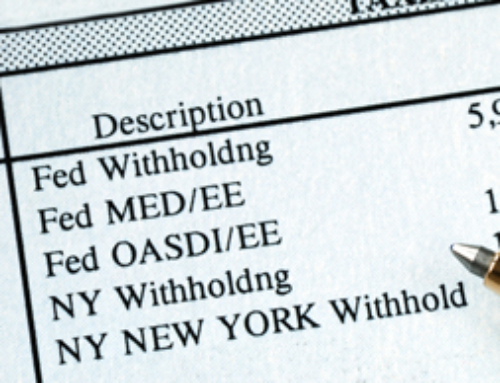 I met Roger B. Adams on the Internet, and he quickly became one of my best friends. At the time, he was just learning about taxes as a volunteer at the U.S. embassy in Lisbon, Portugal, helping Americans overseas file their tax returns.
I met Roger B. Adams on the Internet, and he quickly became one of my best friends. At the time, he was just learning about taxes as a volunteer at the U.S. embassy in Lisbon, Portugal, helping Americans overseas file their tax returns.
During the first couple of years of our acquaintance, Roger got hooked on taxes. He immersed himself in international tax issues, passed the IRS Special Enrollment Examination, and became the head of the Volunteer Embassy and Consular Tax Assistance (VECTA) team in Portugal. Roger, now an enrolled agent, re-wrote the training materials and trained the Portuguese government’s staff in Azores and other places. (The IRS has since eliminated the VECTA program.)
Whenever international tax questions arise, I ask Roger. So, let’s ask.
Where do Americans living overseas pay taxes?
First of all, it’s important to know that every American (citizen or green-card holder) must report all worldwide income to the IRS.
True, there is a Foreign Earned Income Exclusion (FEIE) on Form 2555 that excludes taxes on up to $91,500 of your wages or business income earned overseas. This is only available when you file a tax return. Although this exclusion allows you to avoid taxes on the earnings, you are still responsible for paying your self-employment taxes on your business profits.
Besides, this doesn’t exclude taxes on interest, dividends, pensions, and other types of unearned income. That income is taxable in the United States.
Don’t simply skip filing
Many Americans, thinking they are exempt, don’t bother to file at all. Uh oh. You may have already thrown away money you’re entitled to get. But don’t worry. It may be easier to catch up than you think.
Why? Because when you file tax returns in the countries where you reside, the taxes you pay can offset any you might owe in the United States.
Where to look for additional help
Sometimes, we have tax treaties with other countries whereby only they or only the United States will tax certain kinds of income. You can look up your own country in this State Department publication showing the treaties, effective January 1, 2011.
The IRS has an entire section of its website devoted to taxpayers living abroad or foreigners working in the United States. You can call to get help from IRS staff at the Philadelphia campus or at one of the permanent IRS offices in England, Germany, France, or China.
If you need special clarification or assistance when tax issues between the United States and your country may cause a hardship, you’ll want to get in touch with the competent authority. The IRS can provide you with information on how to submit issues to this office.
The FEIE isn’t always the answer
Finally, I learned an interesting twist from Roger. Sometimes, you’re better off not using the FEIE. By reporting all your income, you could be eligible for certain refundable credits (child tax credits, for instance) or to fund your IRA or retirement accounts, and you could not take advantage of these options if your income were not taxable.
Hmmm…do you think it’s time to review your recent tax returns to see if you can amend them to snag some refunds?
READ MORE:
Best Tax Tips: The Tax Effects of School Supplies and Courses
2012 Standard Mileage Rate: How it affects Your Business Vehicle
Entrepreneurs and Start-Ups: Best Tax Tips
Eva Rosenberg, EA, is the publisher of TaxMama.com®, where your tax questions are answered. She teaches tax professionals how to represent you when you have tax problems. She is the author of several books and e-books, including Small Business Taxes Made Easy. Follow her on Twitter: @TaxMama






